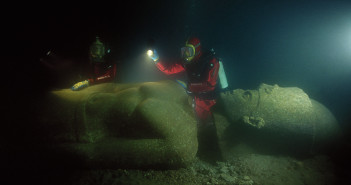
The Superpowers of Seagrasses
How many times have many of us, myself included, ignored a sign like this during…

How many times have many of us, myself included, ignored a sign like this during…
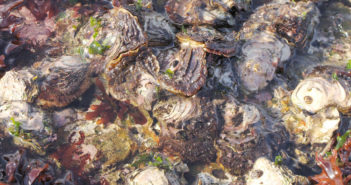
Shellfish are often on plates in our homes and in restaurants. Many of these are bivalves – clams, oysters, mussels, abalone, and scallops. Think of how difficult it is to get to the tasty meat of some of these animals. Over millions of years, the bivalves evolved formidable defenses in their hard shells

Shellfish are often on plates in our homes and in restaurants. Many of these are…
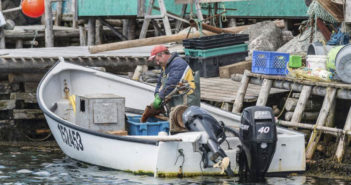
We’re excited to announce the launch of a new report on the state of Canada’s fisheries, called Here’s the Catch: How to Restore Abundance to Canada’s Oceans.
We’re excited to announce the launch of a new report on the state of Canada’s…

We made it! Thanks to all of your help, we surpassed our goal of raising $25,000 in online gifts this month! These gifts were matched dollar-for-dollar by a generous supporter, meaning we’ve raised more than $50,000 to support our fight for a brighter environmental future.
We made it! Thanks to all of your help, we surpassed our goal of raising…
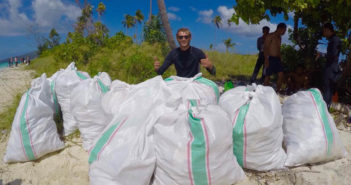
There are a 101 reasons why you should look up Operation Wallacea in Indonesia if…
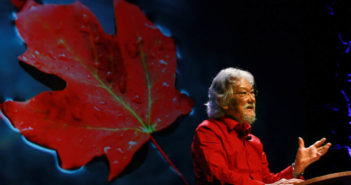
Over the past half century, the world has moved increasingly to industrial agriculture — attempting to maximize efficiency through massive, often inhumane livestock operations; turning huge swaths of land over to monocrops requiring liberal use of fertilizers, pesticides and genetic modification; and reliance on fossil fuel-consuming machinery and underpaid migrant workers. This has contributed to increased greenhouse gas emissions; loss of forests and wetlands that prevent climate change by storing carbon; pollution from runoff and pesticides; antibiotic and pesticide resistance; reduced biodiversity; and soil degradation, erosion and loss.
Over the past half century, the world has moved increasingly to industrial agriculture — attempting…
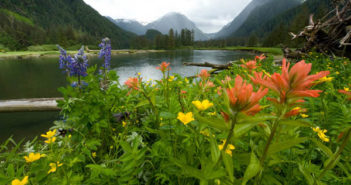
Ecojustice issued the following statement about the federal government’s plans for reviewing Canada’s environmental laws to restore credibility to the environmental assessment process:
OTTAWA — Ecojustice issued the following statement about the federal government’s plans for reviewing Canada’s…
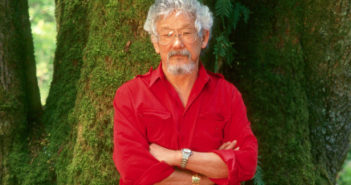
First-time visitors to Australia are often drawn to the big city attractions of Sydney and Melbourne or the fabulous beaches of Queensland’s Gold Coast. I’ve always had a soft spot for Adelaide in South Australia, a city built more on a human scale, where downtown can be easily navigated on bike, foot or tram. For me, Adelaide’s greatest attraction is a huge market right in the city’s center.

First-time visitors to Australia are often drawn to the big city attractions of Sydney and…
The Great Lakes Basin is one of the greatest freshwater ecosystems on Earth. Today, three…
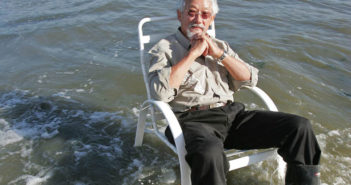
In the early 1990s, Germany launched Energiewende, or “energy revolution,” a program “to combat climate change, avoid nuclear risks, improve energy security, and guarantee competitiveness and growth.” Renewable energy grew from four per cent in 1990 to more than 27 per cent in 2014, including a significant increase in citizen-owned power projects, according to energy think tank Agora Energiewende.
In the early 1990s, Germany launched Energiewende, or “energy revolution,” a program “to combat climate change,…
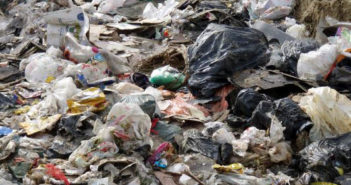
The adverse impact of plastic bags on the environment and sea life is finally getting some push-back in Canada. On Jan. 1, 2018 Montreal will become the first large Canadian city to ban single-use plastic bags. Shoppers will be allowed to use thicker re-cycled bags that can be re-used again and again.

The adverse impact of plastic bags on the environment and sea life is finally getting…

Zebra and quagga mussels are freshwater bivalves native to the Black Sea region of Eurasia.…
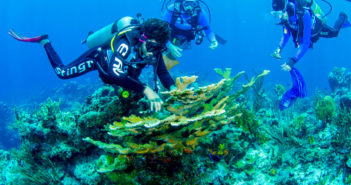
Dive Industry leaders say it is a 365-day commitment to keep Cayman’s environment a major…

Protecting the marine environment is important to us all as divers (as it should be…

Project AWARE Divers Pledge to Protect their Underwater Playgrounds On Earth Day, April 22, Project…

When it comes to scuba diving it is hard to beat exploring colourful tropical reefs,…

Preserving the wreck of the SS Thistlegorm has been being discussed for a long time…

Save the date and join Project AWARE at DEMA 2015! The team will be offering…

Bidding is now open for the Sport Diver 2015 Silent Auction in support of Project…
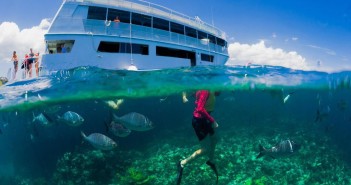
SAVE CAYMAN: Gina Ebanks-Petrie, also Chair of the Cayman Islands Environmental Assessment Board, wants decision-makers…

Divers urge for Measurable Solutions to the Global Issue of Marine Debris at Our Ocean…
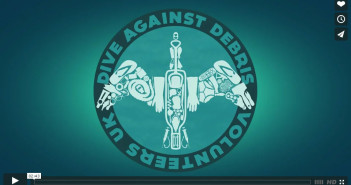
The Dive Against Debris Volunteers UK beach clean at Lansallos goes national, with an item…

First of its kind collaboration to collect data in Nassau Sound Aquatic Preservation Area On…

On Endangered Species Day, May 15th, Project AWARE launched “My Ocean Challenge”- a new, exciting way…

This is an amazing opportunity to combine a holiday with a great marine conservation project.…

The Siren Fleet and Reef Check are working together this July to give you the…

On May 19th, The Marine Foundation will arrive In Belize to commence their first Living…

State of the Oceans Summit III to take place in Orlando during DEMA, November 3rd, 2015…
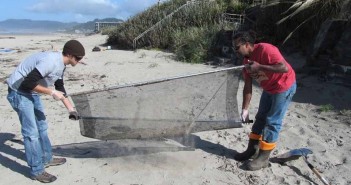
During this years’ EcoWeek Florida Keys (August 15-23), the Wyland Ocean Realm Team will be spearheading the first-ever Microplastic beach cleanup.…

Jobs & revenue of multibillion-dollar industry threatened by ocean degradation, overfishing and climate change Dive…

